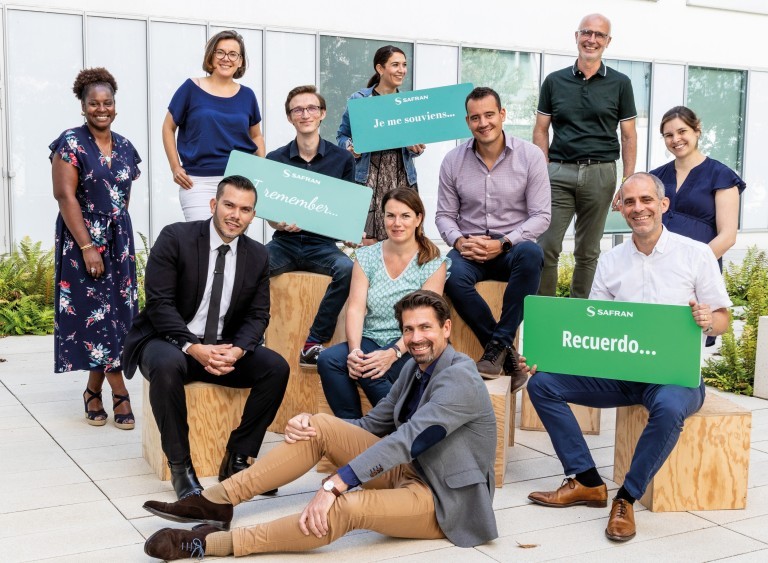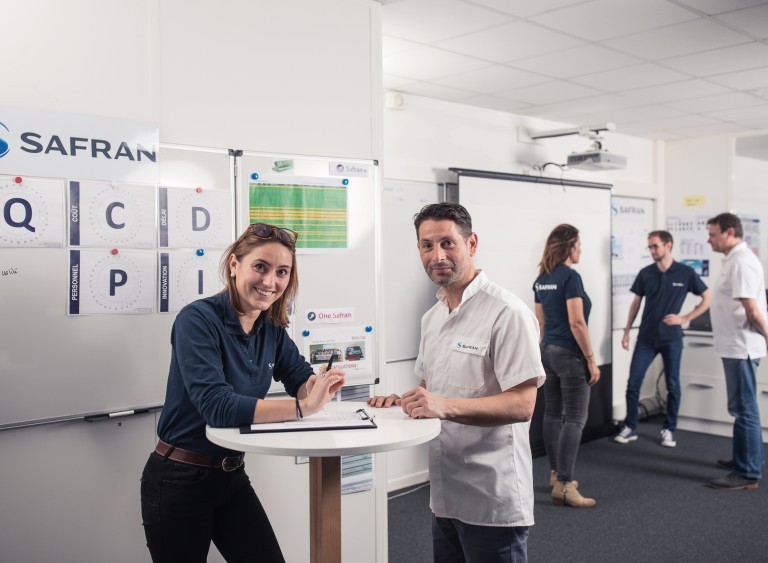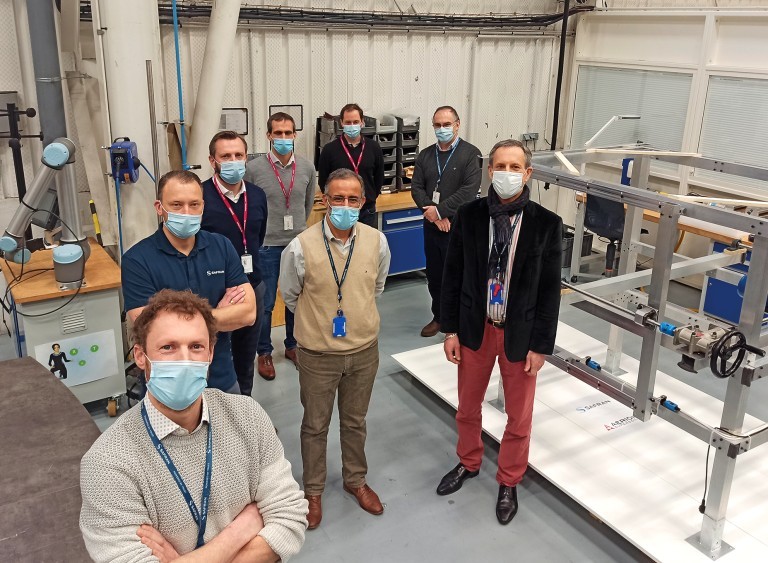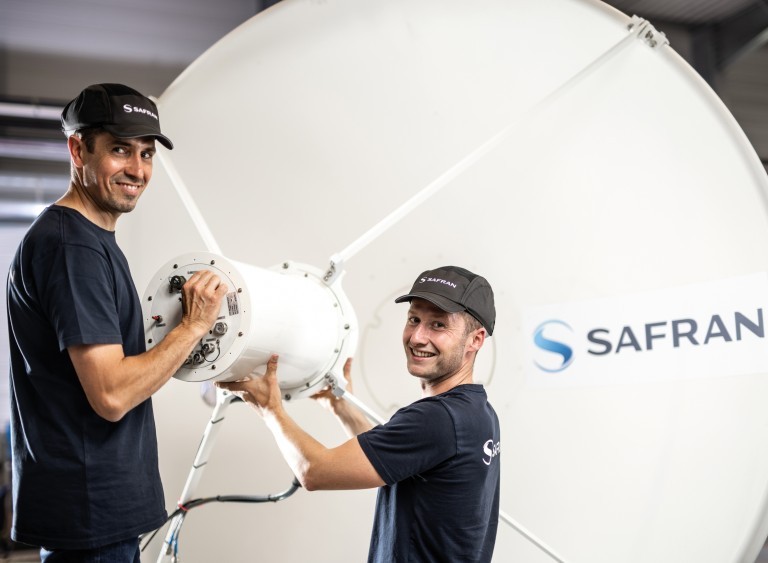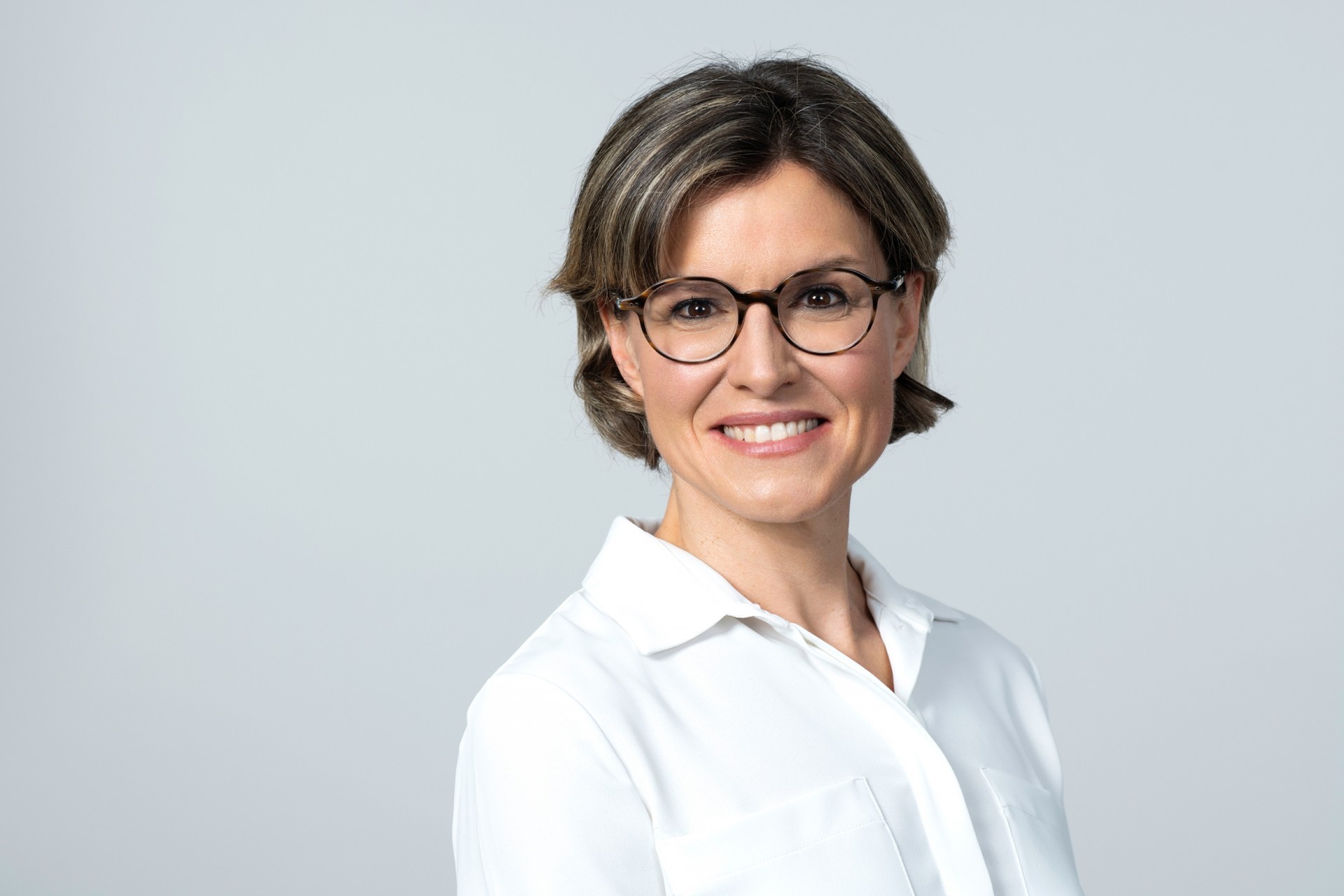
Émilie Delacourte
Émilie Delacourte was named Central Chief Information Officer on March 1, 2021, a position reflecting one of the main challenges facing our Group, namely building an effective IT and digital strategy.
- At a glance
- Special Report
- Snapshots
- A day with
Could you briefly describe the new organization?
Émilie Delacourte: The Digital Transformation and Information Systems department is built on three pillars: our teams in charge of the digital transformation, Safran Analytics staff and the Central Information Systems department. It’s tasked with quickly rolling out an agile, consistent and unified digital architecture for the Group in four strategic 4.0 areas: engineering, manufacturing, services and workplace… not to mention data 4.0, which cuts across all four.
How can Safran’s digital transformation improve our operational excellence?
E.D.: First, by using collaborative communications and other tools, which make information sharing faster and smoother. For instance, several teams can now work on a project at the same time, based on the same facts. But the digital transformation actually encompasses a much vaster scale. The development of advanced analytical tools, and even artificial intelligence, will have a major impact on manufacturing, the supply chain and quality. For example, Safran is developing data processing tools enabling the instantaneous detection of defects by imagery. Furthermore, since the digital transformation will improve quality, costs and on-time delivery, it will also benefit our customers. At the same time, using a Group-wide model, we’re developing tools for our support teams to simplify and accelerate customer services, including data exchanges.
What lies ahead for information systems – will change be evolutionary or revolutionary?
E.D.: A little bit of both… We can’t just wipe out our current architectures, like our ERP systems. But there will be a real break in the solutions developed to connect all these systems and to fully unleash the performance potential of our systems and their data.
The integration of digital technology also makes us more dependent. Isn’t the cybersecurity risk too great?
E.D.: Cybersecurity is an absolute priority. Back in March we launched a cybersecurity plan for Group infrastructures, with two main objectives: attenuate the risks of system paralysis and guarantee data protection.
“The digital transformation is vast: the development of advanced analytical tools, and even artificial intelligence, will have a major impact on manufacturing, the supply chain and quality.”
You’ve held a number of positions in Safran companies since 1999. How would you summarize your wide-ranging experience?
E.D.: Although I originally graduated with a general engineering degree from Mines de Paris, I’ve always worked in IT. In fact, it’s that constant role that made my experiences so diverse! I’ve worked in many different sectors and dealt with problems of all kinds, shifting between management, project management, special assignments, etc., I’ve developed a dual macro/micro vision of our Group. Furthermore, and this is critical, I’ve always been able to strike a good work-life balance, and I’ve always had the feeling that management listened to me, especially when I wanted to make a significant career move. It’s worth reiterating that Safran only judges people according to the excellence of their work. And this is of course a rule I apply myself: my team reflects gender equality, but above all it comprises very talented people!
Discover how Safran is strengthening its cybersecurity
Read more
- 225
staff members in the Central Information Systems dept. in 2021.
- 2
top priorities for 2021-22: cybersecurity and collaborative tools.
- 1,500
people work in Group company IT departments.
- 250
services offered by Central Information Systems.
So you’re familiar not only with the Group’s digital challenges, but also those facing several companies. What major deadlines has the Central Information Systems department set?
E.D.: Based on the policy defined by the Executive Committee for our department, our next steps for this year and the first half of next year are implementing the cybersecurity plan and rolling out collaborative tools based on Office 365. At the same time, we’re supporting some longer-term projects: HR management systems, customer relationship management (CRM) systems, and three SAP projects for Safran Cabin, Safran Aircraft Engines and Safran Electronics & Defense. Last but not least, we’ll be helping our counterparts at Group companies meet the objectives in their own 2021 roadmaps.
Watch the interview with Frédéric Verger, Safran CIO
Watch the video

